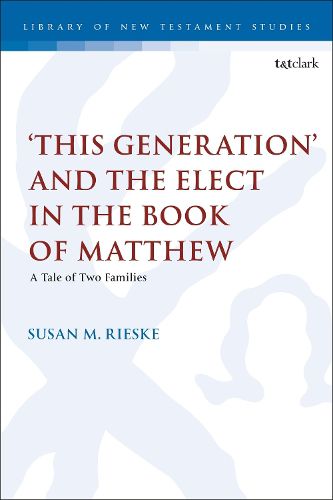Susan M. Rieske presents an exploration of the phrase "this generation" and its central term, genea, in the Gospel of Matthew. She investigates how it demonstrates the concept of two spiritual families: "this generation", who have persecuted God's servants throughout the ages, and the elect, the family of God. She provides an in-depth examination into how this contrast is part of a "wicked generation" motif that is evident in Hebrew Bible texts as well as Second Temple and New Testament literature, and how knowledge of this motif can improve understanding of Matthew's theology.
Rieske demonstrates how "this generation" invokes the familiar story of the redemptive historical conflict between the elect and non-elect seedlines traced back to Genesis. By examining seven key passages of Matthew, including Matthew 1:1-17 to explore the purpose of Matthew's genealogy and the missing generation, and Matthew 17:14-20 to illustrate the identity of genea, Rieske suggests that Matthew's Gospel is the contemporary expression of this longstanding redemptive historical reality. She concludes that this motif serves to legitimize the messianic family as the true children of God and heirs of the kingdom while explaining the persecution they faced at the hands of "this generation."





